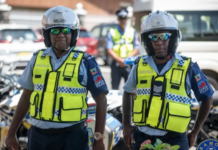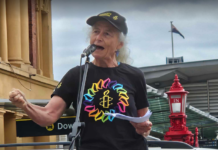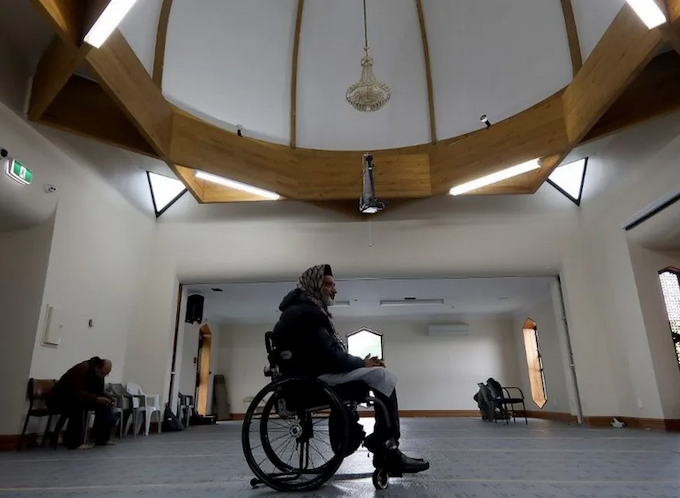
FIRST PERSON: By Mahvash Ikram, RNZ First Up senior producer
The image of Amna Ali telling her five-year-old son that his father is in heaven will forever be etched in my memory.
Mohammad was six months old when his dad Syed Jahandad Ali was killed at Al-Noor mosque.
As Amna sat there bravely telling me her story, a little voice said “Mama”.
- READ MORE: Muslims mark 5th anniversary of Christchurch mosque terror attacks
- Coalition government falling short on mosque attack anniversary – Islamic council
- Christchurch terror attack: Survivors finding new purpose five years on — Mahvash Ikram
Her son had been upstairs playing with his granddad while his mother talked to the strange lady who he’d never met before.
Clearly, his patience had run out.
She wanted to tell him to be quiet, but I asked her to bring her son down instead.
I had never met Syed, but had seen pictures of him.
Spitting image
Mohammad is a spitting image of his father.
He sat in Amna’s lap as she explained to him she was telling me about his “Baba”.
And then she told him is Baba is in heaven, “he’s in the best place” she told him to repeat.
Since Syed’s death Amna has completed two diplomas, travelled alone with her three children and is planning to start an IT career.
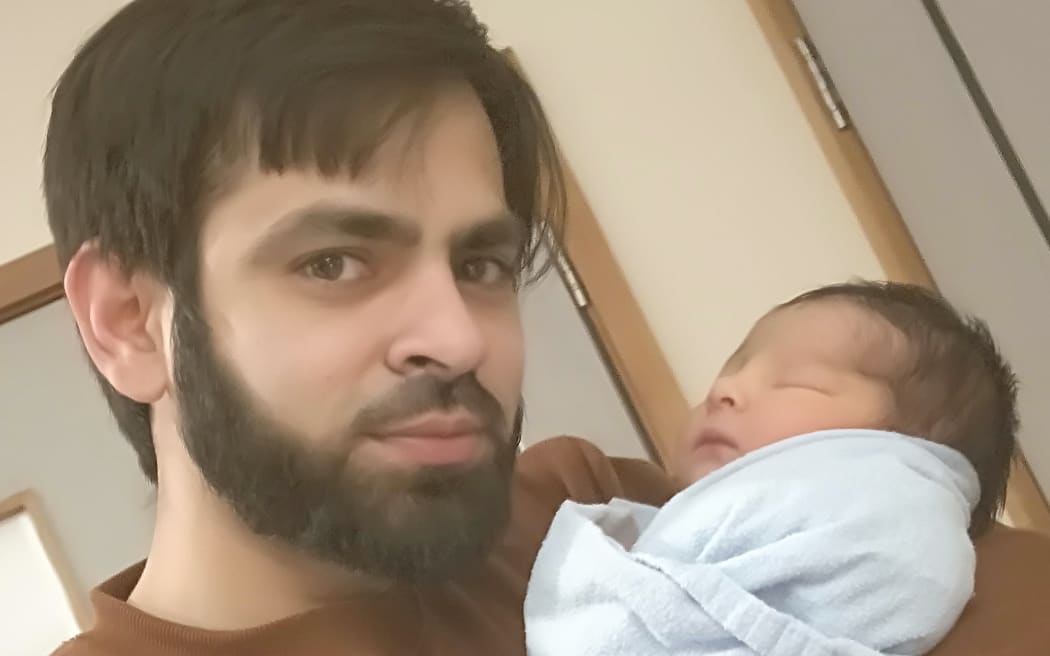
Ironically, her graduation ceremony is on March 15, and she planned to receive her diploma in person.
Even as she looked back at the most painful years of her life she didn’t shed a single tear.
On the other hand, I found it hard to fight the lump in my throat.
He was a foodie
After the interview, she had an elaborate morning tea on the kitchen counter — I was surprised how this mum of three young children found the time to prepare so much beautiful food.
Syed was a foodie she told me, he loved her cooking.
Just hours earlier I had left Auckland, like every other year it was time to do a story about the mosque attacks.
But this anniversary was going to be different I told myself. I had planned to meet survivors and families and talk about their achievements.
I had no idea their resilience and strength would be so overwhelming.
Most of the people in the mosques on the day of the attacks came from countries where terrorism isn’t rare.
Over the past five years many people have asked me, with no malice at all, why the Christchurch attacks left such a deep impact on the survivors and families.
Best answer?
Perhaps, survivor Faisal Abbas has the best answer.
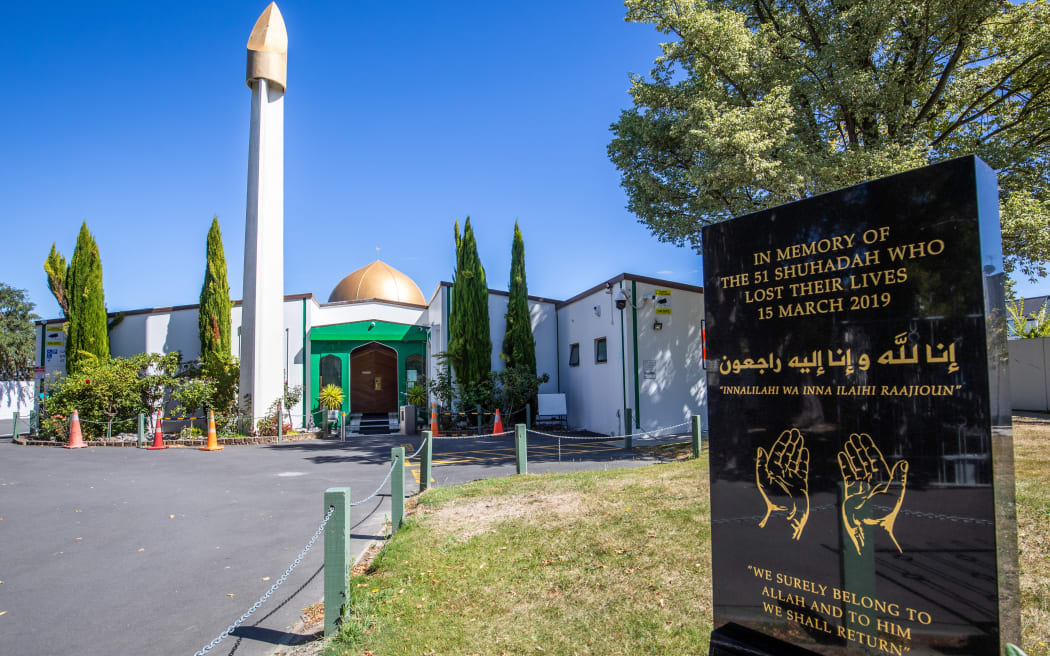
He was in Peshawar, Pakistan, in 2014 when terrorists gunned down hundreds of teachers and students at the Army Public School massacre.
It was his school and he wanted to send his children there.
The principal who died saving her students had been his teacher.
To him, it was a final nail in the coffin. He told me he did not want to be where even his school wasn’t safe, so he picked the safest country he could find and moved to New Zealand.
For Faisal, he says, it’s his first hand experience of terrorism and choosing to get away from it that made the Christchurch attacks even harder to process.
‘Going with the flow’
Before the attacks, he said, he meticulously planned everything, but now he prefers to “go with the flow”.
He trusts in Allah’s plan and he knows whatever will happen is for the best.
And then he repeated a verse from the Quran where God tells Prophet Mohammad “Verily with hardship comes ease”.
I share the same religion as the survivors, but I pray my faith in God becomes as strong as theirs.
One of the toughest thing as a journalist is to decide what makes the final cut.
Farid Ahmed made headlines around the world for choosing to forgive the attacker who killed his wife.
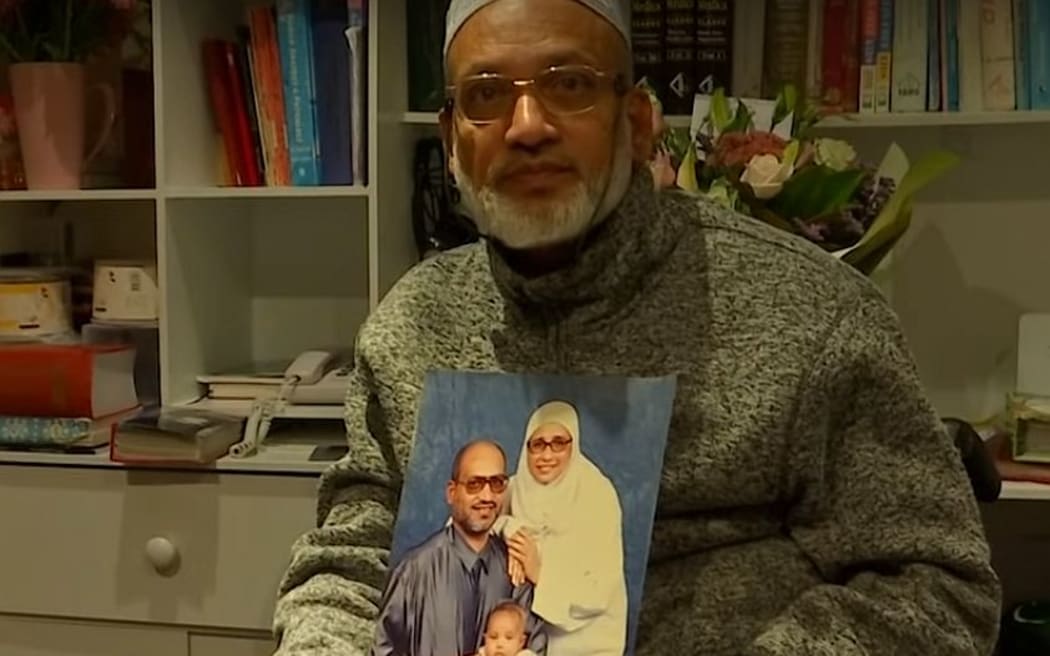
When I interviewed him for my story on this trip he was in hospital fighting an infection — a detail that I didn’t put in the story.
Message of love, forgiveness
Being in a wheelchair hasn’t stopped him from spreading the message of love and forgiveness.
I told him perhaps now would be a good time to slow down and rest. He just smiled and said there was no time, otherwise it would be a disservice to his wife who died saving others.
One of my favourite parts of the trip was visiting Temel Atacocugu. Despite nine bullets and some 30 surgeries, his sense of humour is intact.
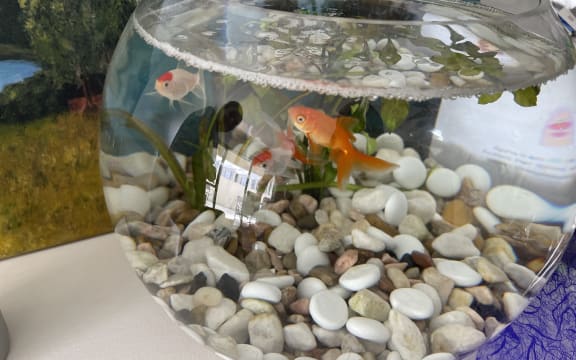
He has three pet goldfish all of whom he’s given Turkish names. Pakize — the pure one, Serafettin — the good boy and Abuziddin, Temel says that’s just a traditional name.
I didn’t imagine I would come back feeling so moved.
Five years ago, the survivors and families I met told me they would rebuild their lives. Every year they inched closer to that goal.
This time they seemed to have delivered on that promise.
I can only marvel at the miracle of their strength and resilience which is beyond my understanding.
And the only words that help me make any sense of it all are: “Verily with hardship comes ease”.
This article is republished under a community partnership agreement with RNZ.































